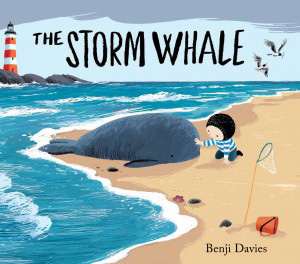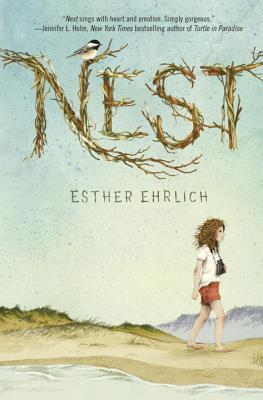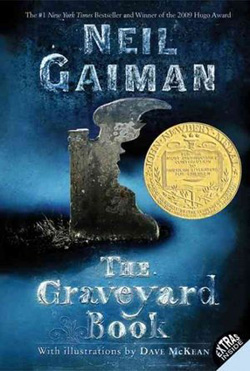How to Read a Book to Review It
Introduction
If you love to read, at some point you will want to share a volume you love with others. You lot may already exercise this by talking well-nigh books with friends. If you want to share your ideas with more people than your circle of friends, the way you do that is by writing a review. By publishing the reviews you write, you tin share your ideas about books with other readers around the world.
It'southward natural for young readers to misfile volume reviews with book reports, nevertheless writing a book review is a very different procedure from writing a book written report. Book reports focus on the plot of the book. Frequently, the purpose of volume reports is to demonstrate that the books were read, and they are often washed for an consignment.
A book review is a totally different task. A volume review'due south purpose is to aid people decide whether or non the volume would interest them enough to read information technology. Reviews are a sneak peek at a book, not a summary. Like wonderful smells wafting from a kitchen, book reviews lure readers to desire to taste the book themselves.
This guide is designed to assist you become a strong book reviewer, a reader who can read a book and then melt up a review designed to whet the reading appetites of other volume lovers.
Grade: What should the review expect like?
How Long Should It Be?
The start question we usually ask when writing something is "How long should it be?" The all-time answer is "Every bit long equally it takes," simply that's a frustrating answer. A full general guideline is that the longer the book, the longer the review, and a review shouldn't be fewer than 100 words or so. For a long book, the review may be 500 words or fifty-fifty more.
If a review is also short, the review may not exist able to fulfill its purpose. Too long, and the review may devious into likewise much plot summary or lose the reader's interest.
The best guide is to focus less on how long to write and more on fulfilling the purpose of the review.
How Do Y'all Create A Title?
The title of the review should convey your overall impression and not be overly general. Strong titles include these examples:
- "Full of activity and complex characters"
- "A nail-biter that will go on you up all dark"
- "Cute illustrations with a story to match"
- "Perfect for creature lovers"
Weak titles may look like this:
- "Really good book"
- "Three stars"
- "Pretty practiced"
- "Quick read"

How Should It Brainstorm?
Although many reviews begin with a short summary of the book (This volume is most…), there are other options as well, so feel free to vary the way yous brainstorm your reviews.
In an introductory summary, be careful not to tell too much. If you lot retell the unabridged story, the reader won't experience the need to read information technology him/herself, and no ane appreciates a spoiler (telling the end). Hither are some examples of summaries reviewers from The New York Times have written:
"A new film book tells a magically simple tale of a lonely male child, a stranded whale and a dad who rises to the occasion."
"In this heart-course novel, a girl finds a way forward after the loss of her mother."
"Reared by ghosts, werewolves and other residents of the hillside cemetery he calls home, an orphan named Nobody Owens wonders how he will manage to survive among the living having learned all his lessons from the expressionless. And the man Jack — who killed the remainder of Nobody's family unit — is itching to end the task."
"In vivid poems that reflect the joy of finding her voice through writing stories, an laurels-winning author shares what information technology was like to abound upwardly in the 1960s and 1970s in both the North and the Due south." Other ways to begin a review include:
- Quote: A striking quote from the book ("It was a bright common cold day in April, and the clocks were striking thirteen.") can brand for a powerful starting time. This quote begins George Orwell's novel 1984.
- Background: What makes this book of import or interesting? Is the author famous? Is it a series? This is This is how Amazon introduces Divergent: "This first book in Veronica Roth'southward #1 New York Times bestselling Divergent trilogy is the novel the inspired the major movement motion picture."
- Interesting Fact: For nonfiction books in particular, an interesting fact from the book may create a powerful opening for a review. In this review of The Middle Due east past Philip Steele, Zander H. of Mid-America Mensa asks, "Did yous know that the Saudi arabia'due south Rub' al-Khali desert reaches temperatures of 140 degrees Fahrenheit in the mean solar day and plummets to the freezing point at nighttime?"
- Explanation of a term: If a word or phrase in the book or title is confusing or vitally important to sympathize, you may wish to begin the review explaining that term.
Process: What should I write about?
Deciding what to say most the volume can be challenging. Use the following ideas as a guide, but think that yous should not put all of this into a single review — that would make for a very long review! Choose the things that fit this item book best.
Full general Information
What the reader ought to know
- What kind of book is it? (Film book? Historical fiction? Nonfiction? Fantasy? Chance?)
- Does the book vest to a serial?
- How long is the book? Is it an easy or a challenging read?
- Is there anything that would be helpful for the reader to know nearly the author? For case, is the author an expert in the field, the author of other popular books, or a first-fourth dimension author?
- How does the volume compare to other books on the same topic or in the same genre?
- Is the book written in a formal or breezy manner? Is the language remarkable in whatsoever mode?
- What ages is the book geared to?
- Is the book written in normal prose? If information technology is written in poetic form, does it rhyme?
Plot
What happens?
Writing about the plot is the trickiest office of a review because you want to give the reader a feel for what the book is about without spoiling the book for time to come readers. The well-nigh important thing to remember is that yous must never give away the catastrophe. No one likes a spoiler.
One possibility for doing this is to set up upwardly the premise (A brother and a sister find themselves lost in the woods at the mercy of an evil witch. Volition they be able to outsmart her and escape?). Another possibility is to set the major conflict in the book and leave information technology unresolved (Sometimes the waiting is the hardest function or He didn't know what he stood to lose or Finding your purpose in life can be as easy as finding a true friend.)
Try to avoid using the tired phrase "This book is about…" Instead, just bound right in (The stuffed rabbit wanted more than anything to live in the big old house with the wild oak trees.)

Characters
Who lives in the volume?
Reviews should answer questions about the characters in fiction books or non-fiction books about people. Some possible questions to answer include:
- Who are the principal characters? Include the protagonist and adversary.
- What makes them interesting?
- Do they human activity like real people human action or are they too good or too evil to be believable?
- Are they human?
- What conflicts do they face?
- Are they likeable or understandable?
- How do they connect with each other?
- Exercise they appear in other books?
- Could you relate to any of the characters in the story?
- What problems did the main characters confront?
- Who was your favorite character, and why?
- We learn about characters from things they do and say, likewise as things other characters say about them. Y'all may wish to include examples of these things.
Theme
What is the volume about at its heart?
What is the volume really about? This isn't the plot, simply rather the ideas behind the story. Is it about the triumph of good over evil or friendship or love or promise? Some common themes include: change, desire to escape, facing a challenge, heroism, the quest for ability, and human weaknesses.
Sometimes a book will have a moral — a lesson to learn. If and so, the theme is usually connected to that moral. As you write about the theme, try to place what makes the book worth reading. What will the reader think about long subsequently the book is finished? Ask yourself if there any item lines in the book that strike y'all as meaningful.
Setting
Where are we?
The setting is the fourth dimension and place the story occurs. When you write about the setting in a review, include more than only the location. Some things to consider:
- Is the volume set in the past, present or futurity?
- Is information technology gear up in the earth nosotros know or is it a fantastical world?
- Is it mostly realistic with elements of fantasy (animals that tin can talk, for example)?
- Is the setting unclear and fuzzy, or tin can you hands make the motion-picture show in your mind?
- How much does the writer describe you into the setting and how does s/he attain that?

Opinion & Analysis
What do you actually think?
This is where the reviewer shares his/her reactions to the book that go beyond the essential points described above. You lot may spend half of the review on this section. Some possible questions to address include:
- Why practice yous think other readers would bask it? Why did you enjoy information technology (if you did) or why didn't you (if y'all didn't).
- What ages or types of readers do you lot think would like the volume?
- How does it compare with other books that are in the same genre or by the same author?
- Does the book engage your emotions? If a book fabricated you laugh or cry or call up about information technology for days, be certain to include that.
- What do yous like or dislike near the author's writing style? Is it funny? Is information technology hard to follow? Is it engaging and conversational in tone?
- How well do you think the author accomplished what s/he was going for in the writing of the book? Do you think you felt what the author was hoping you would feel?
- Did the book feel consummate, or did information technology feel as though key elements were left out?
- How does the book compare to other books like information technology you've read?
Are there parts that are merely not conceivable, even assuasive for the reader's understanding that it is fiction or even fantasy?
- Are at that place mistakes?
- Would you describe the book every bit for entertainment, self-improvement, or information?
- What was your favorite part of the book?
- Would y'all have washed anything differently had you been the writer?
- Would any reader savour this book? If non, to what ages or type of reader would it appeal?
Special situations: Nonfiction and young reviewers
Some of the tips and ideas above work best for fiction, and some of information technology is a little too complicated for very young reviewers.
Nonfiction
What to practice if information technology's real
When reviewing a book of nonfiction, you will want to consider these questions:
- What was the author's purpose in writing the book? Did the author attain that purpose?
- Who is the target audition for the book?
- What do you think is the volume'southward greatest value? What makes it special or worthwhile?
- Are the facts shared accurate?
- Is the book interesting and concord your attention?
- Would information technology exist a useful add-on to a school or public library?
- If the book is a biography or autobiography, how sympathetic is the bailiwick?
- Is information technology easy to sympathize the ideas?
- Are at that place extra features that add together to the enjoyment of the volume, such as maps, indexes, glossaries, or other materials?
- Are the illustrations helpful?
Young Reviewers
Keeping it simple
Reviewing a volume can be fun, and it's not hard at all. Just inquire yourself these questions:
- What is the volume most? Y'all don't need to tell the whole story over — but give an idea of what it's nearly.
- Exercise you think other people would like it?
- Did you retrieve information technology was funny or lamentable?
- Did you larn something from the book?
- l Did you call up information technology was interesting?
- Would you want to read it again?
- Would yous desire to read other books by the same author or virtually the aforementioned subject field?
- What was your favorite part?
- Did you lot like the pictures?
Retrieve! Don't give away the ending. Let's keep that a surprise.
Full general Tips & Ideas
Apply a few quotes or phrases (keep them short) from the book to illustrate the points y'all make about the book. If there are illustrations, be sure to comment on those. Are they well done? Has the illustrator done other well-known books?
Make sure you include a decision to the review — don't go out it hanging. The conclusion can be merely one sentence (Overall, this book is a terrific choice for those who…).
You lot tin use the transition word handout at the terminate of the Writer's Toolbox to discover ideas for words to connect the ideas in your review. If you would like to read some well-written reviews, look for reviews of books for young people at The New York Times or National Public Radio.
Rating Books
How to accolade stars?
Most places you post reviews inquire you to rate the volume using a star organisation, typically in a range of from one to 5 stars. In your rating, you should consider how the book compares to other books like it. Don't compare a long novel to a short poetry book — that'southward non a valid comparison.
It's important to call up that it's not asking y'all to merely give five stars to the very best books e'er written.
- five Stars: I'm glad I read information technology or I loved information technology (this doesn't mean information technology was your favorite book ever).
- iv Stars: I similar it. It's worth reading.
- three Stars: It wasn't very good.
- 2 Stars: I don't like information technology at all.
- 1 Star: I hate information technology.
Source: https://www.mensaforkids.org/teach/lesson-plans/book-review-guide/
0 Response to "How to Read a Book to Review It"
Post a Comment